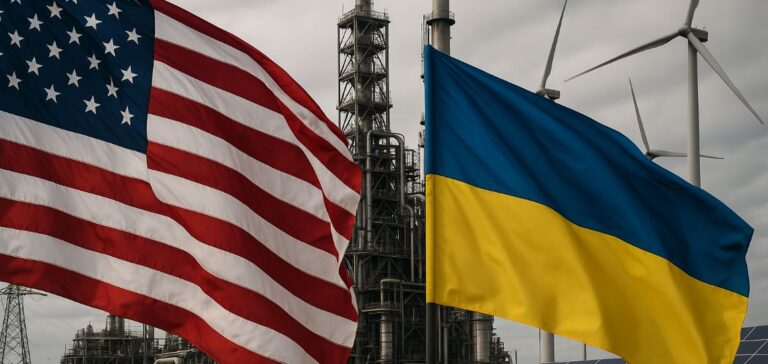An intergovernmental agreement on the exploitation of natural resources has been signed between the United States and Ukraine, establishing a joint investment fund to finance Ukraine’s reconstruction. The mechanism, described as equitable by Kyiv and “win-win” by Washington, includes shared governance between both states and direct participation in financial flows generated from Ukraine’s subsoil.
Fund structure and management terms
The agreement outlines the creation of a board of directors composed equally of Ukrainian and American representatives. The fund will receive 50% of royalties generated from the exploitation of natural resources, including oil, gas, minerals, and rare earth elements. Profits will be reinvested locally, and no debt will be assigned to Ukraine for the American financial aid provided since 2022.
The US administration retains the right to acquire resources directly or appoint third-party buyers. Furthermore, any new American military assistance will now be treated as a financial contribution to the fund.
An economic lever amid geopolitical pressures
The agreement covers 57 types of resources, including graphite, lithium, titanium, and manganese. According to the Bureau de Recherches Géologiques et Minières (BRGM), Ukraine holds around 20% of the world’s estimated graphite resources and possesses significant lithium potential, both of which are essential to the technology sector. The country also ranks 8th globally in manganese production and 11th in titanium.
Despite this potential, part of the deposits lie in territories controlled by Russia. Large-scale exploitation remains dependent on security and logistical conditions shaped by the ongoing war.
No formal security commitments
No military protection clause was included in the signed document. While Kyiv has repeatedly called for explicit commitments against future Russian offensives, the United States has opted for an economic approach, arguing that its direct interests in Ukrainian resources serve as a deterrent in themselves.
Ukrainian President Volodymyr Zelensky hailed the agreement as “truly equitable”, while Economy Minister Ioulia Svyrydenko noted that its implementation would still take several months. US Treasury Secretary Scott Bessent defended the agreement by asserting that it was not “a predatory contract” akin to those sometimes criticised in other regions.






















